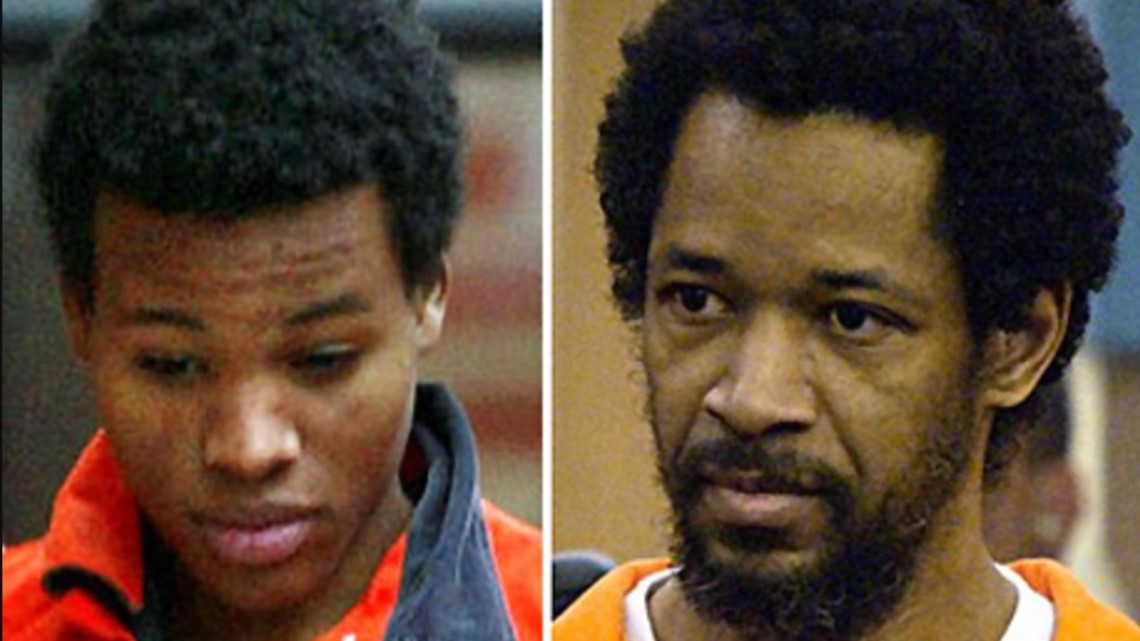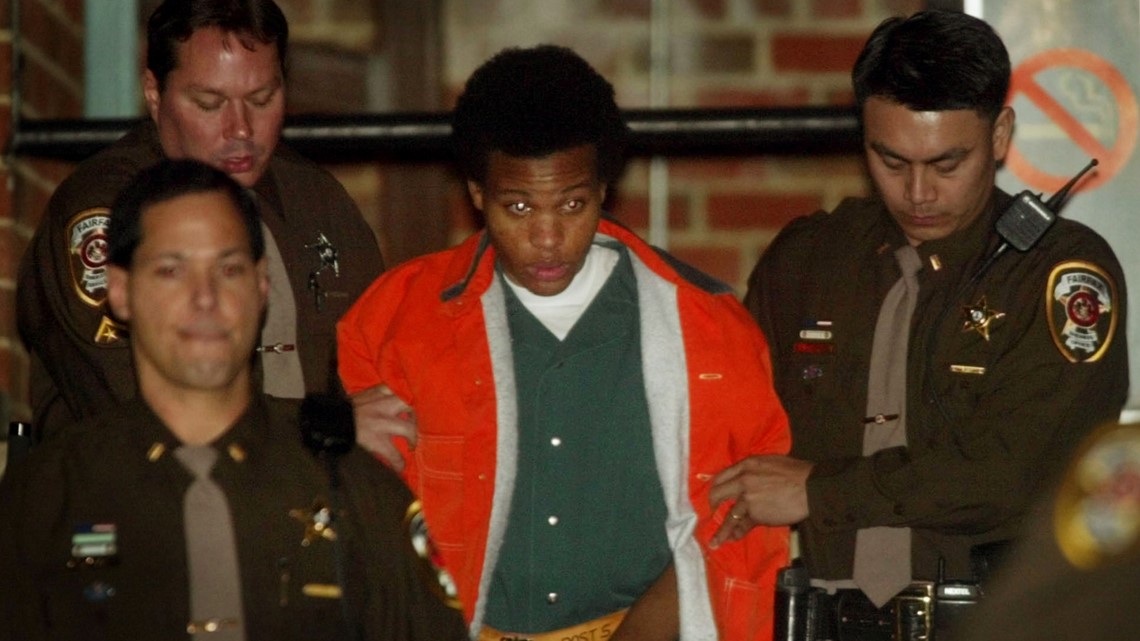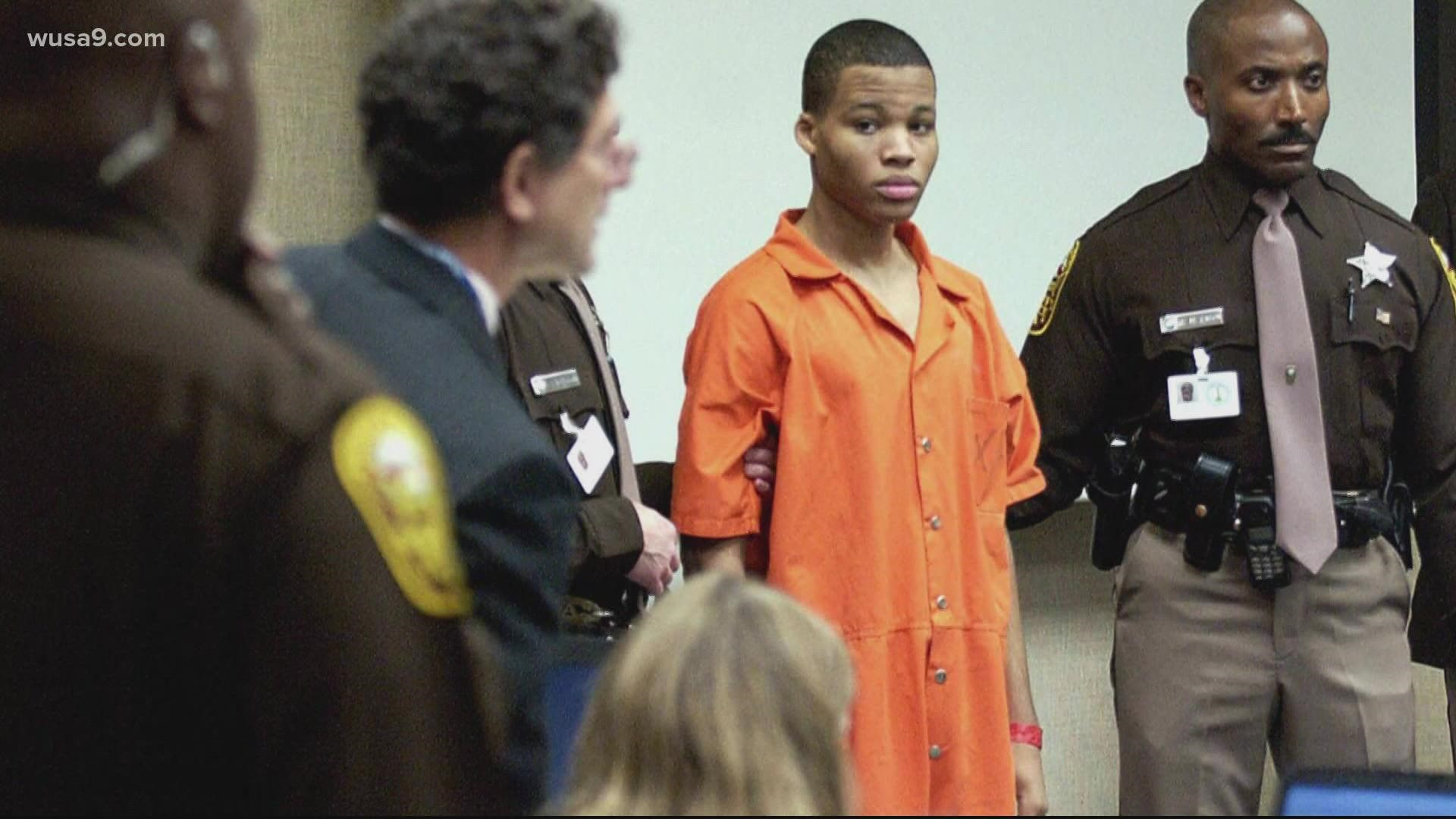MONTGOMERY COUNTY, Md. — Oral arguments began Tuesday in D.C. sniper Lee Boyd Malvo's quest to seek either sentencing relief or release under a Maryland law that applies to prisoners who were convicted as juveniles and also because of U.S. Supreme Court precedent. But it could be months before Maryland judges make a decision on whether to grant Malvo's request.
Malvo, who turns 37 on Feb. 18, was sentenced to multiple life terms after he pleaded guilty to the killing of six random people in Montgomery County in October 2002. He was 18 when he was convicted for his role, alongside John Allen Muhammad, in the sniper spree that terrorized the D.C. region. Together the pair killed 10 people and wounded three in Maryland, Virginia and the District of Columbia. Others were killed as the pair made their way to the D.C. region from Washington state.
Muhammad was executed in 2009.
Tuesday, a lawyer for Malvo and an attorney for the state argued before Maryland's Court of Appeals. Malvo's lawyer told the seven-judge panel that life sentences without the possibility of parole are unconstitutional and violate Maryland law. An attorney for the state wants the court to deny the request, partly because of the gravity of the crimes and Malvo's willingness to participate.
In 2012, a U.S. Supreme Court ruling found mandatory life sentences without parole for juvenile offenders violate the 8th Amendment and are unconstitutional. Maryland's General Assembly abolished life without parole for youths last year, overriding a veto by Gov. Larry Hogan.
WATCH: DC sniper survivor says Malvo shouldn't get out of prison anytime soon
Malvo was also sentenced to life without parole in the Virginia killings, but the Commonwealth passed similar legislation in 2020. He is still behind bars there but because of the new law, he could theoretically be up for parole review this year.
The National Association of Criminal Defense Lawyers has filed an amicus brief in the case in support of Malvo, asserting "the issues presented in this case are of paramount importance to criminal defense attorneys throughout the country and the clients they represent." It claims that Maryland's juvenile offender act actually constitutionally contradicts the U.S. Supreme Court ruling and he should be resentenced to be afforded the relief from the 2012 ruling.
The NACDL outlined potential remedies if Malvo's sentence is found to be unconstitutional in light of the U.S. Supreme Court's 2012 ruling, Miller v. Alabama. If this ruling is found to have been violated, states across the country either have made juvenile offenders eligible for parole or have ordered resentencings.


The criminal defense lawyer's group further asserts that Maryland’s Juvenile Restoration Act (JUVRA) is constitutionally inadequate to cure sentences that violate the 2012 Miller ruling, saying that juvenile life-without-parole sentences that violate Miller should simply be “void” as a matter of law.
JUVRA does not void a sentence; rather it lets a juvenile offender who has been imprisoned for at least 20 years file a court motion up to three times in an attempt to receive a reduced sentence. The amicus brief from the National Association of Criminal Defense Lawyers states, "Malvo’s sentences violate the Eighth Amendment, and JUVRA does not cure that constitutional violation. He must be resentenced to remedy these violations."


A key factor in the Miller ruling is the consideration of the development of a juvenile offender's brain and the potential for rehabilitation. The Supreme Court considered discoveries in neuroscience and declared "children are different" when it comes to determining constitutional sentencing law.
The ruling determined that life-without-parole sentences are unconstitutional for those juvenile offenders who are not permanently incorrigible.
The court's term ends in June. There is no exact timeframe for judges to issue their decision in Malvo's case, but the court says all opinions are to be completed by Aug. 31.

